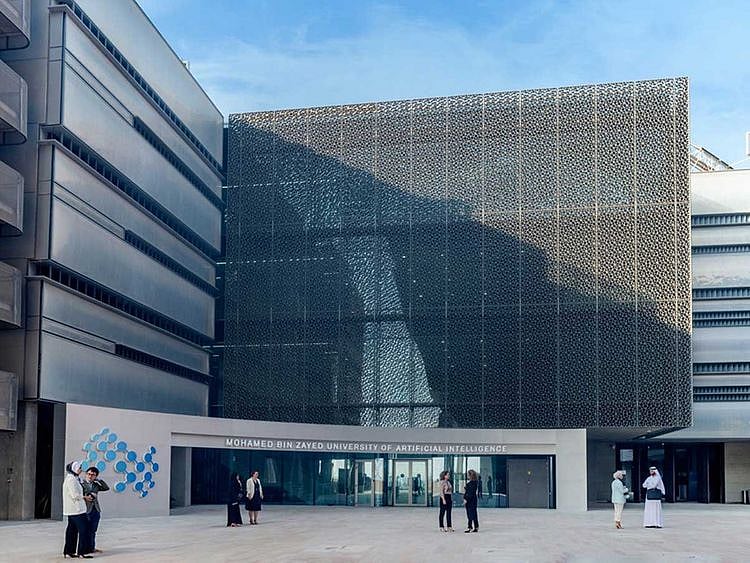Students receive masters degree from Abu Dhabi's MBZ University of Artificial Intelligence
59 MBZUAI students joining graduating class of 2023 on Sunday

Abu Dhabi: Mohamed bin Zayed University of Artificial Intelligence (MBZUAI) Abu Dhabi will hold its first graduation ceremony on June 4 at the Abu Dhabi Energy Center in Masdar City.
Some 59 graduates from more than 25 countries will be honoured at the Abu Dhabi Energy Center in Masdar City.
The Class of 2023 includes the first-ever cohort of master’s students in Natural Language Processing (NLP), in addition to the second class of machine learning and computer vision graduates.
The MBZUAI , the world’s first graduate research university dedicated to artificial intelligence (AI), has a vital role to play in many of the UAE Government’s strategic objectives, with AI identified as a critical component for future growth and prosperity.
AI ecosystem
The university, which is dedicated to advancing AI as a global force for humanity, aims at nurturing homegrown and international talent alike with the aim of creating an AI ecosystem that will make Abu Dhabi, and the UAE, a leader in this transformative technology.
Class of 2023 includes international students including Felicia Kovacs from Hungary, and Kudaibergen Abutalip from Kazakistan, who will graduate with master’s degrees in NLP and computer vision, respectively.
Gulf News spoke to some international students and this is what they said about their studies at the MBUAI
Felicia Kovacs, Hungary
Felicia Kovacs joined MBZUAI in 2021 after completing a bachelor’s degree in computer science at Liverpool John Moore’s University.
At MBZUAI, Kovacs carried out research on multimodal fake news detection with the aim of developing AI solutions to help journalists detect content from interviews that require fact checking.
Kovacs said about fake news as a growing phenomenon in social media and in the media in general. She said: “My research focuses on a specific topic within the more general multimodal fake news detection problem. Under the supervision of Professor Preslav Nakov, Deputy Department Chair of NLP and Professor of NLP; and Dr Shady Shehata, Affiliated Associate Professor of NLP, we explored ways to help journalists and fact-checkers use AI to detect claims that are interesting to fact-check.
This is an understudied but fundamental problem. There are so many claims made on a daily basis, but manual fact-checking capacity is quite limited. Thus, it is important to be able to spot and prioritise claims to fact-check automatically.
He noted: “MBZUAI offers growing opportunities with one of the greatest faculties in AI. Furthermore, advanced computational resources, and excellent sports and accommodation facilities, greatly supported a healthy student life and contributed to a solid research environment. MBZUAI is truly an international environment:
Data-driven solutions
Kudaibergen Abutalip, a student from Kazakhstan said that he decided to choose MBZUAI because he wanted to deepen his understanding of AI, including how to develop data-driven solutions and apply them to industry.
Abutalip discusses how he wants to use computer vision to help solve challenges in healthcare, education, and the economy.
“My thesis was on variability in staining protocols, and our proposed method can be potentially used to enhance deep learning models’ capacity to generalise to unseen images.
“In other words, our aim is to help machine learning systems to analyze digitally-scanned biopsy slides more accurately, thus reducing potential errors. This is crucial in the healthcare domain and could help speed up many medical procedures, such as diagnosing diseases and conducting medical research.”
“If I had to choose one word to describe my experience at MBZUAI, it would be ‘growth’. MBZUAI helped me to acquire not only technical skills, but also new friends, and everything together resulted in many unforgettable moments,” he added.
Sign up for the Daily Briefing
Get the latest news and updates straight to your inbox
Network Links
GN StoreDownload our app
© Al Nisr Publishing LLC 2026. All rights reserved.